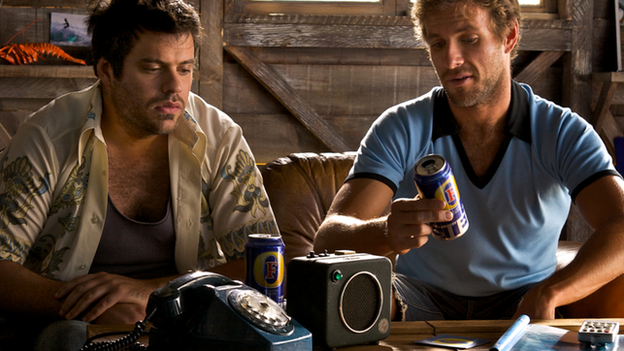Call to restrict alcohol advertising
- Published

Brad and Dan from the Foster's adverts were recognised by 10-year-olds
Campaigners are calling for action to make sure children are not regularly exposed to alcohol adverts.
Alcohol Focus Scotland said current codes were failing to prevent under-18s from absorbing alcohol messages on TV, online and in the cinema.
The call came as a survey for alcohol concern groups suggested primary school children were more familiar with some beers than biscuit and crisp brands.
Brand recognition of Foster's lager was 95% among 10 and 11-year-olds, it said.
This ranked above McVitie's biscuits, McCoy's crisps and Ben & Jerry's ice cream.
The survey found that 79% of the 10 and 11-year-olds recognised the Foster's characters "Brad and Dan" from the TV commercial.
More than three quarters (79%) recognised Smirnoff and two-thirds (66%) knew WKD, the survey claimed.
And it said more than half of the children (55%) associated Carling with football.
Adult press
Alcohol Focus Scotland, Alcohol Concern, Balance North East and Drink Wise called for alcohol advertising to be restricted to factual information in adult press, cinema advertising only to be allowed for 18 certificate films, and the phased removal of alcohol sponsorships.
In the longer term, they want a ban on alcohol advertising and sponsorship.
Prof Gerard Hastings, founder of the Institute of Social Marketing at the University of Stirling and an Alcohol Focus Scotland board member, said: "This research shows that alcohol marketing is clearly making an impression on our children.
"Existing evidence shows that exposure to alcohol marketing leads young people to start drinking at an earlier age and to drink more."
He added: "Alcohol companies claim only to advertise their products to adults, but children are consuming the same media and taking in the same pro-alcohol messages as adults."
The survey was carried out during October-December 2014. In Scotland, 192 children were surveyed.